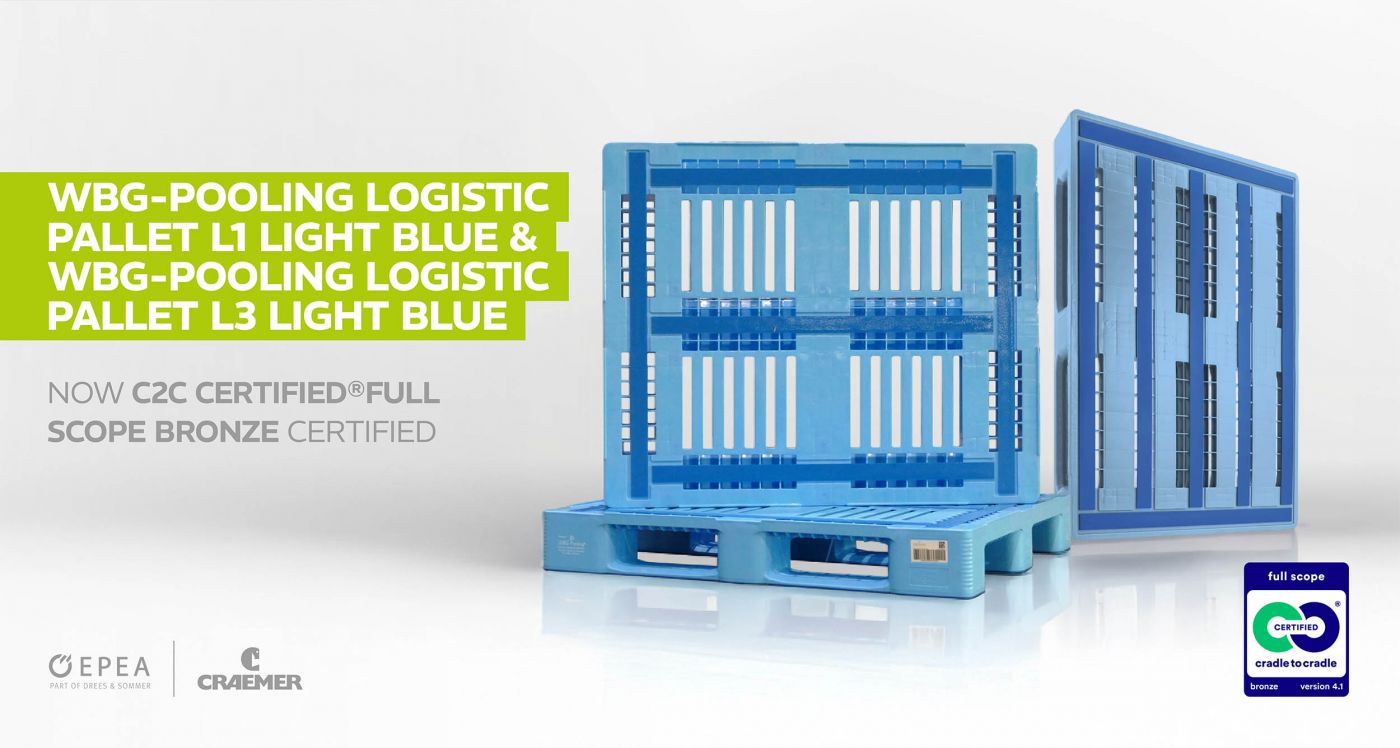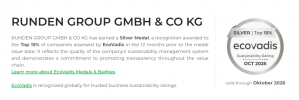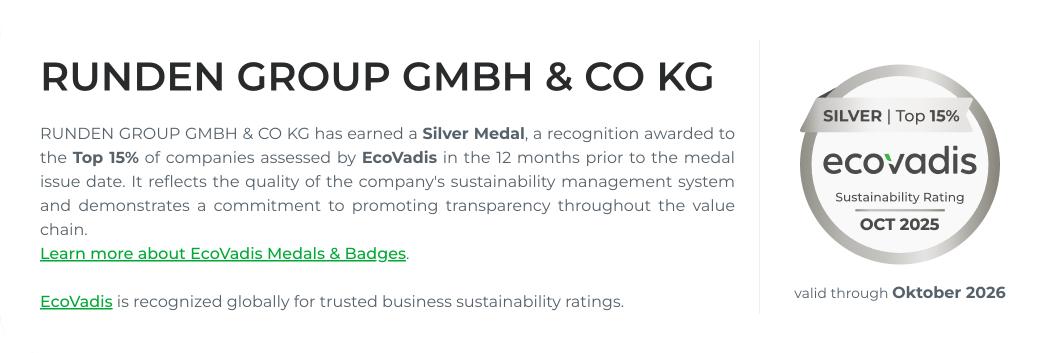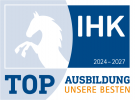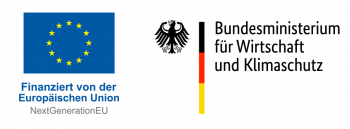When resource consumption increases in parallel with economic growth, this is a linear economy; widespread and common practice in almost all industries worldwide. In contrast to this are the circular economy and the Cradle to Cradle (C2C) principle.
The basic idea is that economic growth and the consumption of primary resources are completely decoupled from each other.
The C2C approach, developed in the late 1990s by German chemist Michael Braungart and US architect William McDonough, goes one step further:
While traditional models often have the aim only to minimize damage (“less bad”), C2C aims for a consistently positive environmental impact (“good from the start”).
It is therefore about well-thought-out product design that is geared towards the continuous reuse of materials and their complete return to technical or biological cycles at the end of their life cycle – without loss of resources and without downcycling.
WBG Pooling has been undergoing Cradle to Cradle certification for its product groups since 2022, starting with the WBG Pooling BigBoxes and the WBG Pooling Foldable Crates.
The WBG-Pooling-L1-Logistic Pallet light blue and the WBG-Pooling-L3-Logistic Pallet light blue are now part of the third product group to achieve successful certification – in this case at the bronze level.
The certification was carried out in accordance with version 4.1 of the standard, and a total of five categories were evaluated:
- Material Health – here, the pallets achieved the silver level:
This means that there is no migration of harmful substances. The pallets are free of critical chemicals that could migrate into the packaged food. - Product Circularity – here, the pallets achieved the silver level:
This criteria ensures that closed cycles are used and that products are designed in such a way that they can be reused, repaired, or returned to biological or technical cycles without leaving any residue after use. - Clean Air & Climate Protection
This ensures that no harmful emissions are released into the air during the manufacture and use of the pallets. The criteria assesses whether the product’s carbon footprint is minimized. This includes the use of renewable energies in production and the avoidance of climate-damaging processes. - Water & Soil Stewardship
This category focuses on the responsible use of water resources and careful management of soil quality. Wastewater must be treated in such a way that no harmful residues are left in waters. - Social Fairness
This criteria focuses on fair working conditions throughout the entire supply chain, including living wages, safe working environments, and respect for human rights, both in the production of products and in the extraction of raw materials.
In addition, WBG Pooling identifies with the three basic principles of C2C:
- Waste is food
All materials should be either biodegradable (composting) or technically recyclable (holistic recycling). - Use renewable energy
Production and transport should be powered by green electricity or solar energy. - Promote diversity & reuse
Products are designed to be durable, repairable, and modular.
The Cradle to Cradle seal offers several advantages for customers and business partners: The reusable pallets are free of harmful substances, the design and choice of materials support circular economy processes, and resources can be conserved collectively, which in turn contributes to compliance with planetary boundaries.
Economic transformation processes and circular product designs do not happen on their own – such milestones require strong partners at your side.
The certification of the pallets was easily implemented thanks to the manufacturing company, Craemer GmbH. As WBG Pooling acts as a system service provider, we rely on progressive suppliers who disclose their production conditions and are also committed to sustainability.
As with the other product groups, the certification was accompanied by EPEA GmbH – Part of Drees & Sommer.
And that’s what makes WBG-Pooling-logistics pallets so special:
They are easy to clean and, thanks to their material, resistant to moisture, bacteria, and fungi—ideal for the sensitive transport of foodstuffs such as dairy products, meat, or fruit and vegetables. In addition, they do not deform in cold temperatures and are ideal for frozen food logistics.
Unlike wooden pallets, there is no risk of dirt adhesion or wood fibers in production facilities.
The pallets are used in a closed cycle, cleaned, and reused immediately – the pooling system eliminates the procurement costs and disposal costs for disposable packaging and reduces greenhouse gas emissions by avoiding waste.
By the way: The C2C certification of the pallets ensures compliance with ESG targets! The use of this high-quality recyclable product reduces Scope 3 emissions in the supply chain and thus supports sustainability reporting in accordance with the Corporate Sustainability Reporting Directive.

